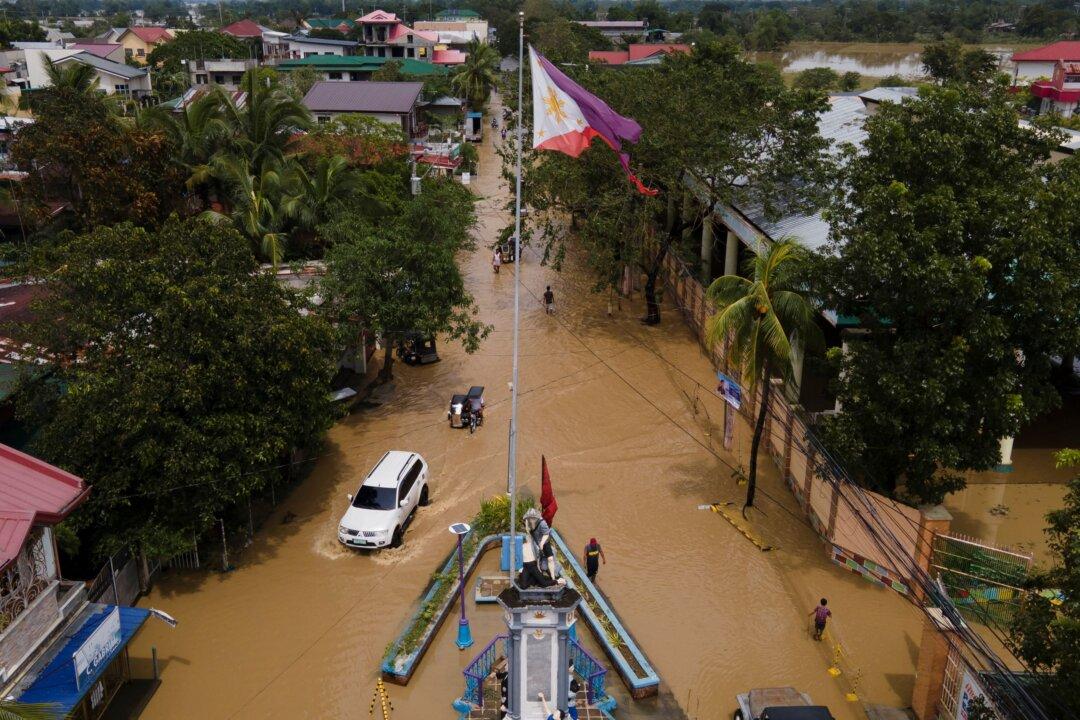SAN MIGUEL, Philippines—Typhoon Noru left a trail of destruction in northern Philippine Provinces on Monday with at least eight people dead, including a group of rescuers who were scrambling to save villagers trapped in floodwaters, officials said.
Five government rescuers drowned in San Miguel town in Bulacan Province after their boat overturned when it was hit by a collapsed wall, tossing them into rampaging floodwaters, police and officials said.





